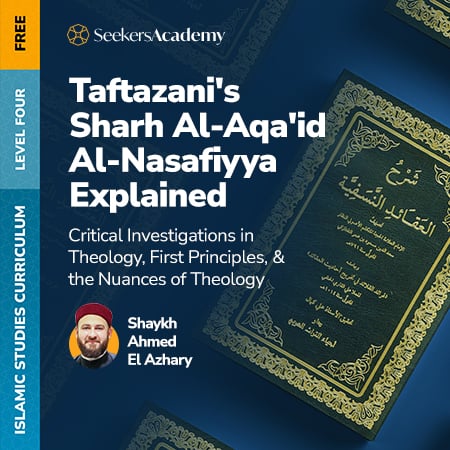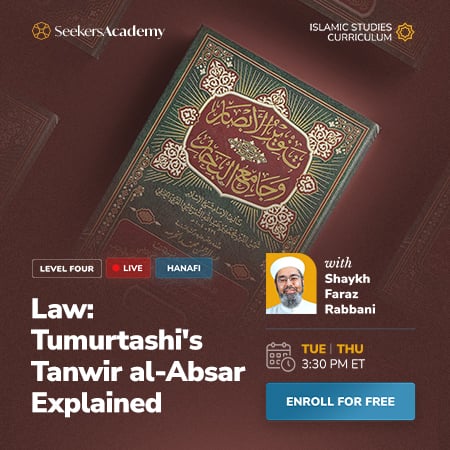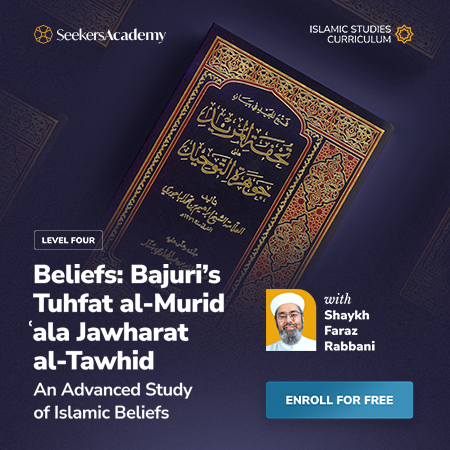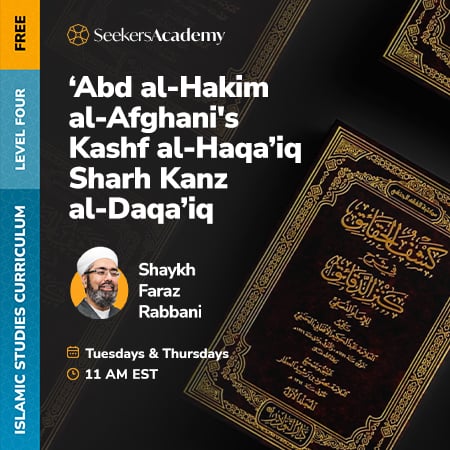
This is a Level Four course on Islamic Beliefs in the Islamic Studies Curriculum. It unpacks the questions (masa’il) of Taftazani’s pithy Sharh al-’Aqa’id al-Nasafiyya, arguably the most important textbook ever written in the science of Islamic theology.
This course explains the intellectual context in which the book’s questions are set, and then applies those questions to contemporary theological problems, with a special focus on modern science and occasional digressions into Western philosophy.
Take this course with Shaykh Ahmed El Azhary to understand what the science of kalam is; the historical circumstances that led to its development; who the Mu’tazilites were and why they are important; who the falasifa were and why they are important; what philosophical skepticism is, what motivates it, its relevance to kalam, and how it should be tackled; what human knowledge is and how to distinguish truth from falsehood; the epistemological value of sensation, rational inference, historical transmission, and revelation; and the relation of all of these topics to non-religious historical accounts of Islamic theology, cognitive psychology, and evolutionary accounts of human development.
For centuries, Taftazani’s Sharh al-’Aqa’id has been a standard and indispensable part of curricula in traditional institutions of learning all over the Muslim world. No other textbook in any of the Islamic sciences has as many scholarly glosses (hawashi) as it does. The importance of a textbook can be judged by the number of glosses that have been written on it. The innumerable glosses on Sharh al-’Aqa’id by scholars in the Ottoman Empire, in al-Azhar, in the Indian Subcontinent, and elsewhere make it the most important textbook of Islamic theology ever written.
- This course is for dedicated students of knowledge
- This is a Level Four course. Before taking this course, take all courses in Level Three, especially Beliefs: Bajuri's Hashiya al-Sanusiyya Explained: Allah's Attributes and Proofs for His Existence.
- This course can also be taken by anyone who wants to learn Islamic Beliefs at an advanced level.
- Use the epistemology from this to prove the existence of God.
- Respond to medieval and modern objections against the existence of God.
- Describe the cosmology and metaphysics of the falasifa and their role in the development of kalam.
- Learn when to update theological issues in light of modern science and when to use theological issues to correct modern science.
- Navigate contemporary debates over the existence of God using traditional Islamic theology.


